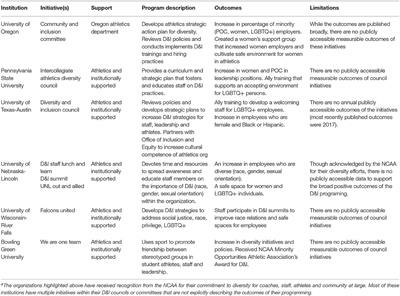This story was reported and published in partnership with MindSite News, a nonprofit news site dedicated to mental health reporting
Ronny Roby has seen more than his share of abusive parents interfering in youth sports. Roby was the park director and substitute youth football and cheerleading coach at Garfield Park in Grand Rapids for 26 years. But an incident at a football camp he and his coaches hosted in late June of this year was particularly chilling.
A mother with two sons at a football camp overheard the coach yelling instructions at her son. After he cursed and threatened people on the sidelines, she called family members on her cell phone and demanded they go to the park and attack the coach. Roby ended up refunding the enraged woman and removing her and her sons from the program.
This is far from an isolated incident: coaches and referees across the country are increasingly facing verbal and even physical attacks from parents. A 2017 National Sports Officials Association survey found that 87 percent of participants had experienced verbal abuse, 13 percent reported being assaulted, and 47 percent said they felt unsafe. Parents have also attacked each other, youth umpires and even players, including tripping teenagers on the pitch, lasering a player in the eye or knocking them over. Racist taunts, taunts and insults of black teams by parents are also all too common.
Last fall, the father of a Vail, Colorado, youth hockey coach sprayed Lysol in the face. The mother of a player in Laurel, Mississippi shot and blackened an umpire at a 12-year-old softball game in a parking lot after a game in April of this year. And in August 2022, popular Texas football coach Mike Hickmon was gunned down — in front of horrified children — after a game for nine-year-olds during an argument over the score. No wonder 80 percent of all new high school sports officials in the U.S. leave the field after two years, according to a recent study by the National Association of State High School Associations.
“It’s so bad that parents are threatening and wanting to fight the officials that we’re short on referees now,” Roby said. In fact, despite salary increases this fall, there is a nationwide shortage of youth sports referees — something experts attribute in large part to a rise in nasty, unpleasant and sometimes violent behavior from sports parents.
As a result, what should be fun sporting events for young athletes are often ruined by out-of-control parents who steal the shine from their children. It’s ironic because, according to recent research, youth sports may be one of the positive childhood experiences (PCEs) that help protect children from the potential lifelong effects of childhood trauma and adverse childhood experiences (ACEs).
Coach Mike Hickmon, who was shot at a youth football game in Texas in August, is in a tribute posted on Twitter.
A mass exodus
Unfortunately, kids in the U.S. are dropping out of youth sports in droves, with nearly 70 percent dropping out before age 13 “because it’s just not fun anymore.” This trend, experts say, is largely due to too much pressure and a growing number of overzealous sports parents who yell at coaches and kids from the sidelines. In addition, the relentless competition, year-round training, pressure for first place and injuries take their toll. Rather than improving children’s mental health, being a member of a sports team under these circumstances can actually be risky, with some young players reporting burnout, depression, anxiety, and even suicidal thoughts.
With unsupervised parents putting the mental health of players, coaches and referees at risk, veteran coaches and non-profit coaching organizations are working hard to bring fun, safety and good sportsmanship back to the game. To see also : Four Conclusions from Auburn’s Dominant Basketball Victory in Israel.
Part of coaching is helping players with fatigue or uncertainty. Here, Mike Noble, trainer and owner of Noble Strong Training, trains the Boys Premiere on Saturday, October 1, 2022, at the Lifequest Urban Outreach Center in Grand Rapids, MI. (Photo: Daytona Niles)
“Parents tend to try to train on the side and it frustrates their child,” Michael Noble, owner and founder of Noble Strong Training in Grand Rapids, Michigan, told MindSite News. Noble, who works with young athletes to take their game to the next level, said over-invested parents often overlook their children’s progress because they are too focused on comparing them to their peers. Although the chances of any child becoming a professional athlete are slim, observers say it’s common for ambitious parents who pay $20,000 for their child’s elite sports program to threaten coaches or get angry about scores or penalties — behavior that which in a few cases seems to have trickled down. to the players.
The growing shift toward private coaching, uniforms, and elite travel teams has also left many families in the dust: Low-income and even middle-class kids and teens are dropping out of youth sports at disproportionately high rates because their families can’t find a community of recreational leagues or afford , to keep them on elite teams, according to an initiative by the nonprofit Aspen Institute called Project Play.
Encouraging fun and friendship
Longtime coach Alonzo McCully with Player of the Year in 2009 (via Facebook) See the article : The 10 Best Immersive Sim Video Games, Ranked.
Alonzo McCully of Grand Rapids, Michigan is an Amateur Athletic Union 4th grade basketball coach who has coached his daughter and her friends since first grade. He does it for fun and excitement, he said in an interview. As he knows, youth coaches and volunteers are often not paid for their work, and those who are paid often say the money is hardly worth the trouble they go through.
The real reward, he said, is seeing the players enjoy themselves: “If they’re not enjoying themselves, that’s worse than seeing parents and coaches arguing.”
To counter the tremendous pressure many young athletes and sports officials face, several national organizations are working hard to bring sportsmanship back into the game. The National Youth Sports Association—founded by Fred Engh, author of Why Johnny Hates Sports, in the early 1980s—is a leading advocate for safe, positive sports for kids.
“I got involved because I had my own kids and I was sick of coaches and parents berating kids and making them cry over little things like dropping the ball,” Engh told MindSite News. “Over the years I have seen and heard about some of the worst behavior you can imagine. One trainer grabbed an 8-year-old by the head and shook him back and forth. A father was caught on camera threatening to beat his son up when he got home if he messed up. Another father ran from the stands and hit his son right there on the field. In another incident, a man shouted, “Aaron, you can never do anything right!” when his kid didn’t block the shot.”
Working with The Athletic Institute, a sports equipment company, Engh and his federation began training volunteer coaches to bring fun and sportsmanship back to the game—“and when we videotaped our certification training, the numbers just exploded,” he says. . Five years ago, NAYS created its national standards for youth sports and trained coaches, volunteers and parents in the US and abroad on how to create a safe and supportive environment for young athletes.
Coach Ronny Roby hugs one of his players during a 12u Falcons football game in Grand Rapids, Michigan (Photo: Daytona Niles)
“Many adults have lost focus on what youth sports are all about – learning teamwork and perseverance, embracing a healthy, active lifestyle and, most importantly, having fun and making friends,” the alliance reports.
“Seeing the smiles on the kids’ faces — that’s what it’s all about,” Chad Rollins, the 2021 NAYS Youth Coach of the Year, said in an interview with the organization. “I just want the kids to have fun. And if they see me, the coach, having fun, they will follow those steps. They will grow and love the game.”
Changing the culture
Another organization, the Positive Coaching Alliance, was founded in 1998 “to change the culture of youth sports so that every child, regardless of social or economic circumstances, has access to a positive youth sports experience. See the article : TV rights deals are on the rise for women’s sports.”
The national nonprofit reports reaching 20 million youth through more than 20,000 live workshops with 3,500 schools and youth sports organizations across the country that emphasize how you play the game is more important than winning. “You can win a game with the most points and still lose if you don’t do it right,” PCA coach Nate Laety said on behalf of the organization in July of this year. Laety, head of the Downington West Little League in Pennsylvania, added that in youth sports, “kids learn to be resilient and face adversity … It’s about how you behave and succeed off the diamond and in life.”
Coach Mike Noble watches his players warm up before a Boy Premiere basketball game in Grand Rapids (Photo by Daytona Niles)
Coaches in the trenches, however, urge parents who are obsessed with sports to let their children make their own way.
In Los Angeles, former FUNdamental Youth League (FYL) coach Mike Spicer reminds parents that young athletes need some privacy and room to grow. “You have to let the coaches coach,” he says. “You can always talk to your kids outside of practice.”
Coach Roby of Michigan agrees and advises parents not to stay at practice. “Put them down, leave them with the trainers for two hours and watch the difference,” he says. “Because when children hear their parents yelling incessantly, they shut up.”
Unfortunately, many parents don’t follow this advice, as reports of verbal and physical fights at play have risen dramatically in recent years, according to NAYS. “Too many parents live vicariously through their children,” says Engh. “They think it’s okay to go to children’s games and yell at them in a way that destroys their self-esteem. I’d like to tell them, maybe they should stop and think about why so many kids are committing suicide these days.”
“The only way to stop this is to punish people who can’t behave,” concludes Engh. “We must hold them accountable for their appalling behavior.”
– Heaven Jobe is a master’s student in the health journalism program at Grady College of Journalism & Mass communication. She holds a BA in Literature, Language and Writing from Eastern Michigan University. As a young sports enthusiast, she coached, refereed and played girls/women’s lacrosse, and played varsity basketball, lacrosse, volleyball and track in high school. MindSite News’ Diana Hembree, longtime captain of her high school’s girls varsity gymnastics team, contributed as an editor. Photographer Daytona Niles contributed on-site photos on behalf of Bridge Michigan.



